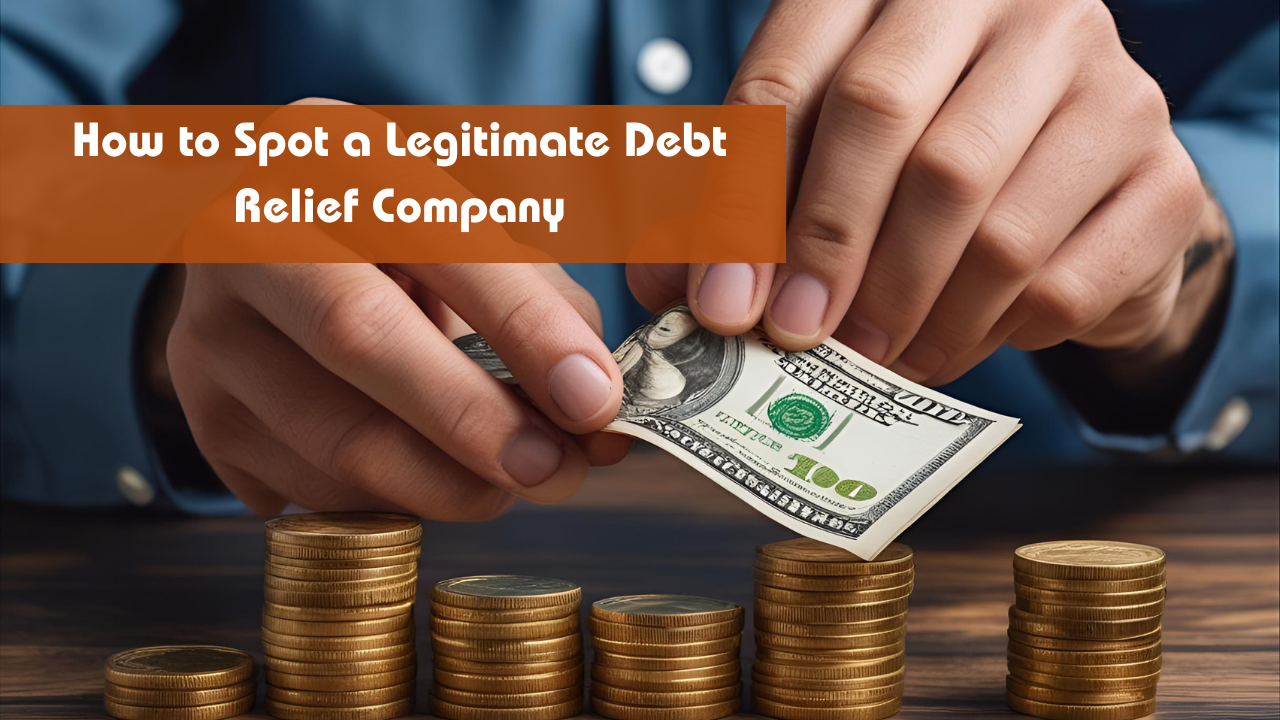With millions of consumers drowning in unsecured debt, debt relief has become a booming industry. Unfortunately, so has the rise of scam companies preying on financially stressed individuals. While real, effective debt relief services do exist, it’s critical to know how to spot a legitimate company from a fraud.
This comprehensive guide breaks down the key features of reputable debt relief firms, red flags to avoid, and how to verify whether the company you’re dealing with is the real deal.
Overview Table: Legit vs. Scam Debt Relief Companies
| Feature | Legitimate Company | Scam or Fraudulent Company |
|---|---|---|
| Accreditation | NFCC, FCAA, BBB-rated | No recognized affiliations |
| Fee Structure | Disclosed clearly, no upfront settlement fees | Demands fees before any service |
| Written Agreement | Full contract outlining terms | Vague promises, little or no paperwork |
| Transparency | Open about risks, timeframes, and outcomes | Guarantees results or fast fixes |
| Licensing & Compliance | Registered in operating states | Unlicensed or refuses to disclose credentials |
| Client Reviews & History | Verified reviews, industry experience | Fake testimonials, little online presence |
1. Accreditation and Industry Recognition Matter
One of the first things to look for in a legitimate debt relief company is third-party accreditation. Well-established oversight bodies ensure that companies follow ethical standards and legal practices.
Legitimate accreditations include:
- National Foundation for Credit Counseling (NFCC)
- Financial Counseling Association of America (FCAA)
- Better Business Bureau (BBB) rating of A or higher
- ISO or SOC certifications for data privacy
If a company lacks credentials or dodges the question, walk away.
2. No Upfront Fees for Settlement Services
Under the Federal Trade Commission (FTC) rules, any debt settlement company is prohibited from charging upfront fees before negotiating or settling any of your debts. A reputable firm:
- Charges only after at least one debt is successfully resolved
- Discloses all fees in writing
- Offers free consultations before asking for payment
Scam alert: If you’re told to pay before you see results, it’s likely illegal and unethical.
3. Clear, Written Agreements
A trustworthy company will provide all terms in a contract or service agreement before you commit. This includes:
- Service scope and limitations
- Total costs or percentage of debt enrolled
- Duration of the program
- Potential risks (such as credit score drops or collections)
Vague promises like “We’ll handle everything” or “This is guaranteed to eliminate your debt” are classic red flags.
4. Transparency About Risks and Outcomes
A legitimate company knows that debt relief is not a one-size-fits-all solution. It will explain:
- How long the process takes (often 24–48 months)
- That creditors are not required to settle
- That your credit score may initially drop
- That legal action or collections may still occur during the program
Scam companies often promise a “quick fix” or “100% guaranteed debt elimination”, which is simply not possible.
5. Proper Licensing and State Compliance
Debt relief firms must comply with state and federal laws, including being licensed or bonded in your state (if required). Legitimate companies:
- Disclose their business address and phone number
- Are registered with state authorities
- Follow Telemarketing Sales Rule (TSR) guidelines
Check with your state’s Attorney General or Department of Financial Regulation to confirm if a company is licensed in your state.
6. Real Reviews, Long-Term Presence, and Referrals
A real company leaves a digital footprint. Look for:
- Verified customer reviews on Trustpilot, BBB, Google, etc.
- A track record of 5+ years in the industry
- Clear leadership, team bios, and contact information
- Professional website with educational resources and FAQs
If the company has no traceable history or only glowing testimonials without sources, proceed with caution.
Summary Table: How to Verify Debt Relief Company Legitimacy
| Verification Step | What to Look For |
|---|---|
| Check Accreditation | NFCC, FCAA, BBB, etc. |
| Review Fee Structure | No upfront settlement fees |
| Ask for a Written Contract | Includes all services, costs, and program duration |
| Demand Risk Disclosure | Full transparency on risks and expected outcomes |
| Confirm Licensing | Registered in your state; compliant with FTC regulations |
| Search Customer Reviews | Verified experiences, not just anonymous testimonials |
3 Best One-Line FAQs
Q: How do I verify a debt relief company’s credentials?
Check for NFCC/FCAA membership and verify BBB ratings and licensing in your state.
Q: Are debt relief companies allowed to charge upfront fees?
No—under FTC law, they can’t charge for settlement services until after a debt is resolved.
Q: What’s the biggest red flag in a debt relief company?
Any guarantee to “eliminate all your debt fast” or pressure to pay fees immediately is a major warning sign.

